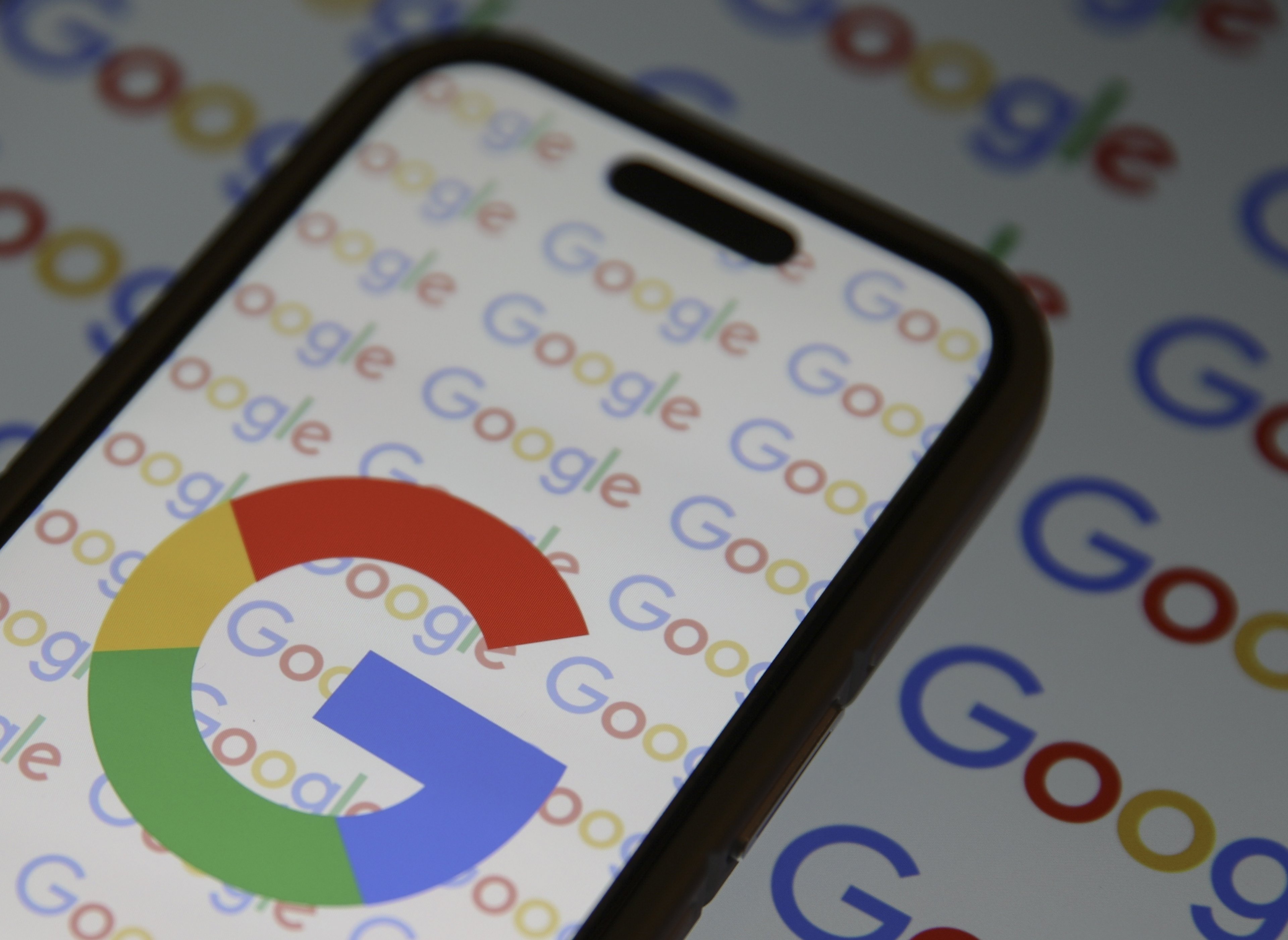There was a lot to like when Google parent Alphabet (GOOGL 1.07%) (GOOG 1.11%) reported its second-quarter financial results on July 23. Even in light of a record fine from the European Union (EU), the company beat expectations by a wide margin, and made good on its promise that the growing costs of traffic acquisition would slow.
Revenue came in at $32.7 billion, an increase of 25.6% year over year, and adjusted earnings per share (EPS) reached $11.75 (excluding the EU fine). Both numbers exceeded analysts' consensus estimates for revenue of $32.17 billion, and adjusted EPS of $9.59.
Beyond the headline numbers, Alphabet provided a wealth of other information on the conference call to discuss the results with investors. Read on to find out what the company's management had to say about cloud computing, artificial intelligence (AI), and the EU fine.

Image source: Google.
On a cloudy day
Alphabet executives had plenty of praise for Google Cloud, with CEO Sundar Pichai observing that the business was a natural extension of the company's strength in computing, data centers, and machine learning.
The company continues to invest heavily in its cloud computing business, saying that the majority of its new hires will be deployed there. Alphabet believes that its cloud offering has distinct advantages compared to other providers. According to the company, its "core capabilities ... technical infrastructure, security app, machine learning, [and] analytical tools," provide Google Cloud with the "core pillars that are needed to win."
When asked about the equally positive cloud business results reported by competitors Microsoft and Amazon.com, Pichai said: "It feels far from zero-sum game. I think all the major players are definitely seeing traction." Pichai believes the company's emphasis on its cloud business now is key, as it's still early days in the migration to the cloud, and this is part of a broad industry inflection point.
AI is core
As he has done on previous conference calls, Pichai continued to extol the virtues of AI, saying it's "enabling us to advance the mission of making information accessible and useful to everyone in new ways."
The Google News app is using AI to highlight stories that will be of interest to users, with an objective to deliver "high-quality information and news." The company is also using AI to improve Google Maps, integrating Google Assistant and augmented reality capabilities. The latest version of Gmail features Smart Compose, a tool that "helps users craft emails faster." Google Photos uses AI to suggest actions to help improve images.
Finally, Pichai said that while the company is using AI across a broad cross-section of the company's tools and features, it's essential to Google's improvements in mobile search:
How is machine learning driving the mobile search experience? The key thing is, it's doing it at a deeper foundational level. We've obviously used machine learning across the board, be it our ranking, actually understanding the intent, the context around the query, and getting you the right answer.
The mammoth fine
One of the biggest questions on the minds of investors was the fallout related to the massive $5 billion fine levied by the EU for alleged anticompetitive actions surrounding the company's Android operating system. The commission found Alphabet guilty of antitrust violations for bundling Google's flagship search and Chrome internet browser, and insisting that device manufacturers pre-install the two in order to use its free Android operating system.
When asked about the ramifications of the decision and how the company would proceed, Pichai said:
We are analyzing the decision, and I think it's too early to comment or speculate beyond what you've already said. But we will always take a constructive approach. We'll appeal the Commission's decision and take the due process available to us. But we are also looking forward to finding a solution above all that preserves the enormous benefits of Android to users.
It will be some time before the case works its way through the regulatory process and we know the final decision. Rest assured, however, that Alphabet will find a way to move forward, while protecting its vast competitive moat.
The bottom line
Alphabet's better-than-expected results capped off several quarters that were dominated by fears of higher traffic acquisition costs, but the company was able to lay those worries to rest this quarter. The company continues to focus on the areas that will drive growth, and investors may finally be giving Alphabet the respect it deserves.







